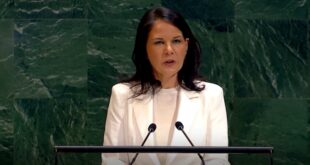The African Union–European Union Summit, an institutional framework established to discuss relationships between both continents, convenes for its 5th edition in Abidjan, the economic capital of Cote d’Ivoire.
African and European Heads of State and Government will gather for the 5th EU-Africa Summit on 29-30 November in Abidjan, Côte d’Ivoire.
The Summits, which take place every three years alternatively in Africa and Europe, take stock of the ties between the two neighbouring continents. Since the first Africa-EU Summit in Cairo in 2000, this is the first edition of the event held in Sub-Saharan Africa.
Under the central theme ‘Investing in youth for a sustainable future’, leaders will tackle issues such as migration and job creation. This is especially important in view of the ongoing crisis of irregular migration and as 60% of the African population is under the age of 25. The fact that poverty and unemployment are the main drivers of migration to Europe from Africa should make issues surrounding economic growth, trade and how to create opportunities for the continent’s young people the main topics of honest and frank discussion at the 2-day conference.
Other issues to be discussed during the summit include: Peace and security; Governance including democracy; human rights, migration and mobility; Investment and trade; Skills development and Job creation.

Even though Africa is broadening its economic relations with other continents, the EU still remains its primary trading partner. The EU is also Africa’s leading overseas aid donor. These facts make the summit very important to African development.
African and European leaders will also take stock of the progress made in the implementation of commitments made in previous summits. The most recent EU-Africa Summit took place in Brussels on 2-3 April 2014 under the theme of ‘Investing in People, Prosperity and Peace’. Topics discussed included education and training; women and youth; legal and illegal migrant flows between both continents; ways to stimulate growth and create jobs; and investing in peace and ways to enhance EU support for African capacities to manage security on the continent.
READ ALSO Libyan migration crisis likely to dominate Africa-EU summit
2017 is a defining year for AU-EU relations, as it has been ten years since the adoption of the Joint Africa-EU Strategy, “with the aim to put Africa-EU relations on a new and equal footing in order to address together the challenges and opportunities of common interest”.
Approximately 5302 participants are slated to attend the Abidjan Summit, 83 of whom are Heads of States representing 55 African countries and 28 European nations, delegations from various partner countries, the African Union Commission, the European Union Commission, international organizations, and regional and sub regional organizations.
Femi Awoniyi
The 2017 EU-Africa Summit will be a culmination of a series of preparatory events including:
Africa-EU Civil Society Forum (11-12 July)
Africa-Europe Youth Summit (9-11 October)
Africa-EU Economic and Social Actors Forum (16-17 November)
EU-Africa Business Forum 2017 (27 November)
Africa-EU Local Governments Forum (27 November)
Parliamentary Summit (27-28 November)
 THE AFRICAN COURIER. Reporting Africa and its Diaspora! The African Courier is an international magazine published in Germany to report on Africa and the Diaspora African experience. The first issue of the bimonthly magazine appeared on the newsstands on 15 February 1998. The African Courier is a communication forum for European-African political, economic and cultural exchanges, and a voice for Africa in Europe.
THE AFRICAN COURIER. Reporting Africa and its Diaspora! The African Courier is an international magazine published in Germany to report on Africa and the Diaspora African experience. The first issue of the bimonthly magazine appeared on the newsstands on 15 February 1998. The African Courier is a communication forum for European-African political, economic and cultural exchanges, and a voice for Africa in Europe.



















